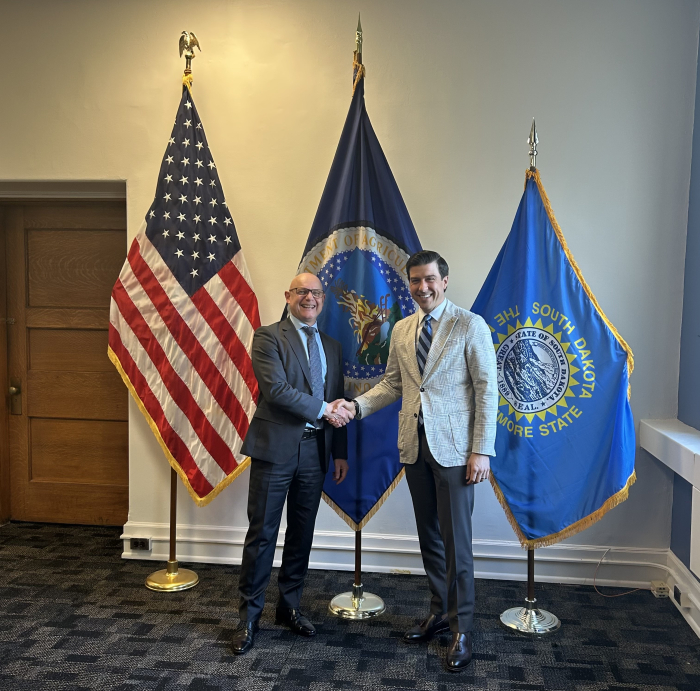Ray Smith has a reputation for rolling his sleeves up and pitching in in a crisis, and for dealing frankly with farmers and other stakeholders of his Ministry for Primary Industries.
Whether it is an emergency response to the biosecurity threat posed by exotic fruit flies or difficult conversations with dairy farmers about to see their herds culled, the director-general has gained respect as a public sector leader able to deal head-on with problems and solve them.
“Smith is a well-regarded leader,” the judges of the inaugural BusinessDesk CEO Index said.
They noted that he had also achieved much in a government-wide role heading health and safety. He was also known for his legacy in previous jobs: “You know that he made such an impact in those organisations since they have gone on to much greater success.”
Smith is short-listed in the public sector category of the awards, which spans leadership in commerce and in government.
Biosecurity crises
As the weather warms up, this time of year can be Smith's busiest and most problematic. Last December, he dealt with a major biosecurity outbreak of avian influenza in Dunedin just as everyone was preparing to head off on holiday.
“But we managed to mobilise our people and get them down there,” he says.
In the first week of January this year, fruit flies were found in Auckland.
“It must have been, like, January 2, when most of us were on holiday, we all found ourselves on a Zoom call,” he recalls.
"I had all my key people from wherever they were, in New Zealand or overseas, figuring out how we would go about supporting communities and getting in place all the things that were needed to trap these fruit flies and to be able to keep the horticulture sector safe."
Rose quickly up the ranks
Smith has had an interesting journey to the top job at MPI. Growing up in South Taranaki, he started his career in Auckland at the age of 17, at what today would be called the Ministry of Social Development.
His work there spanned everything from debt collection to child maintenance. He was a regional manager by the time he was 30.
When he arrived in Wellington in his 30s, he rose quickly up the ranks and came to MPI as director-general after being CEO of Corrections for more than eight years.
Smith has been at MPI for seven years and seems genuinely to enjoy the scope of it.
MPI was created in 2012 and was the Ministry of Agriculture and Forestry before it merged with the Ministry of Fisheries and the New Zealand Food Safety Authority.
Smith has a reputation for getting stuck in when stuff happens. He had MPI people on the ground all over Southland, Otago and Canterbury after the storms in October to make sure all the farmers had help with the cleanup.
“You can’t fanny around and pass things around. You’ve got to make decisions,” he says.
BusinessDesk asked Smith about his approach to the CEO Index criteria of vision, impact, innovation, resilience and influence.
Vision: Simply put, Smith’s vision for MPI is for NZ to be the most trusted provider of high-value food and fibre products in the world and grow the value of both sectors in the process.
MPI has developed four goals which should hold for the next five years, says Smith: to double the value of exports by 2034; deliver solutions for farmers to reduce greenhouse gases by 2030; protect NZ from harmful pests and diseases; and to back the primary sector to win.
He says it's been fun going around the country explaining the MPI action plan to the agency’s 3500 staff and how it affects their individual roles.
“People in fisheries could see where they fit in and people in forestry could see where they fit in,” he says.
Impact: “There is one big measure that unifies primary sector effort – export value. We’ve grown in the last seven years from approximately $44 billion to approximately $60 billion per annum,” says Smith.
Building trust in MPI as a partner across the primary sector and with international markets and agencies is crucial, NZ’s credibility being part of its products’ brands.
“Every piece of food and fibre that leaves New Zealand flows through our food safety, forestry, and fisheries systems, providing certification to markets so that you can trust what is in the shipment.”
Innovation: Smith has secured a $100 million annual investment from the Government into reducing methane emissions, spearheading the development of the AgriZeroNZ public-private joint venture.
He recently went to the United States to visit companies working on methane-reducing inhibitors that AgriZero had invested in.
“I went to see some of the investments we’re making through AgriZero.”
Methane inhibitors might be a feed or a type of grass, a bolus, a probiotic or a vaccine, he says.
“We’ve got things in New Zealand, too, but the idea is to go to the world and find a product so we can win. We don’t really care where it comes from, we just want to provide farmers with a range of options,” says Smith, who expects to see these products come to the market in the next two years.

Ray Smith is welcomed to Washington by Luke Lindberg, the Under Secretary of Agriculture for Trade and Foreign Agricultural Affairs. (Image: US Department of Agriculture)
Smith takes pride in an initiative to get the agency’s regulators to partner with the sectors they are regulating to improve transparency and relationships.
Veterinary medicine approvals involve a lot of regulation, he says. “If you want to use a veterinary medicine in New Zealand, we have to approve it.”
This includes a growing number of methane inhibitors used in NZ dairy, beef and sheep herds as farmers work to reduce methane emissions from their animals by 10% against 2017 levels by 2030.
Resilience: When Smith arrived at MPI in 2018, the decisions to tackle the cattle disease Mycoplasma bovis had been taken, but the biosecurity response was struggling.
He was just three weeks into the role when he heard from the head of Federated Farmers that he was going to a meeting in Ashburton to meet with farmers who were angry about MPI’s response to the bovis programme.
Smith, whose brother is a dairy farmer, invited himself along and fronted up.
“I made a commitment to set things straight and to work with them and to listen to them,” he says.
Smith set up a 10-point plan to lift the programme, part of which was to cull herds on 300 farms – around 300,000 cattle – and he made relationships that day with farmers which continue to this day.
“Look, when you turn up at someone’s farm and they’re just living their life, and you say to them, ‘I’m going to put a notice on your gate that says you might have a cattle disease and I’m going to cull all your animals’, that person’s life and their family’s stop until you get out the other end. It’s like telling someone they’ve got an illness.”
Farmers needed to be compensated quickly and fairly, and they had to trust MPI, he says.
Influence: Smith likes to stress that it’s the Ministry for Primary Industries, not of. So he’s working to support farmers, horticulturists, wine producers, fishers and foresters, among others.
“Our job is to make sure that if you want to be an exporter in this country of a primary product, we help you do that in the best way.
“We make sure it can get on a plane or onto a boat with our certificate on it that says it's safe to consume. That's our fundamental job.”
A good book: Tuesdays with Morrie, by Mitch Albom. “My wife bought me this for my birthday. Sometimes it’s good to read something that makes you think about what’s most important in life.”
Sliding doors: “Either an architect or running a tennis academy for our best talent (I was a top junior tennis player in Taranaki). I’d swap jobs with a primary sector business leader. We could both learn something from each other’s environments.”
● Ray Smith is a finalist in the public sector category of the inaugural BusinessDesk CEO Index. The category winner will be announced on Nov 18. BusinessDesk will publish a profile of the overall winner on Nov 19.
● Read more of the BusinessDesk CEO Index here.










